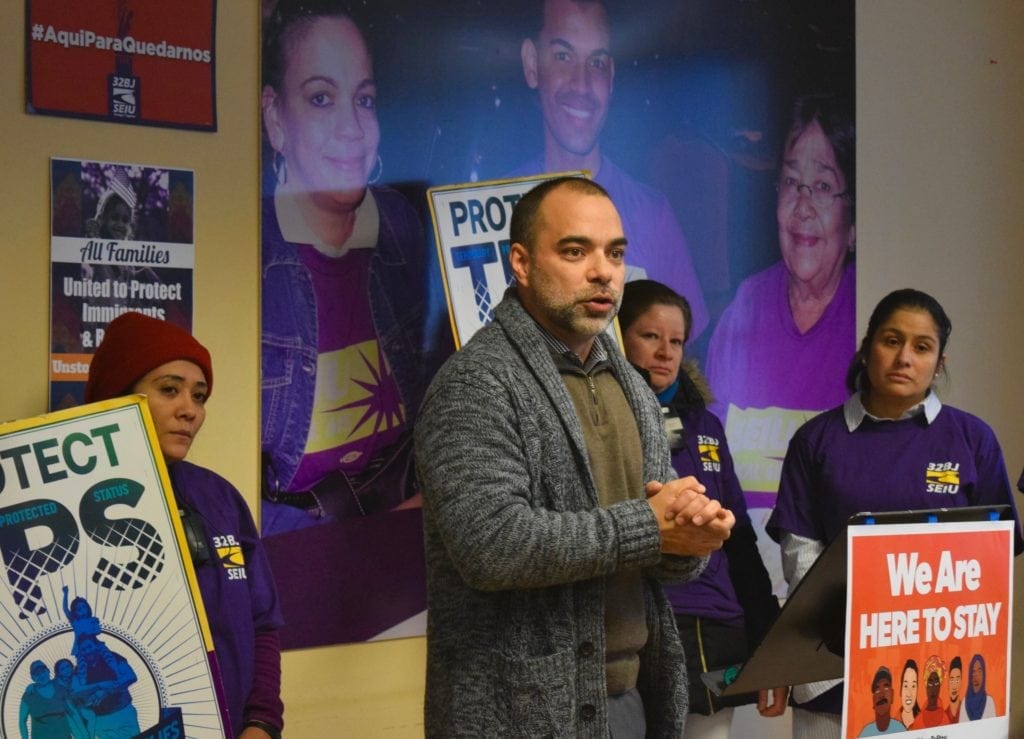Homeland Security ends protective status for Salvadorans
Decision will have negative repercussions on the economy, activists say

The Department of Homeland Security announced on Monday that more than 200,000 immigrants from El Salvador must leave the country by September 2019, after ending their Temporary Protected Status program.
More than 6,000 Salvadorans currently reside in Massachusetts —who have 4,200 U.S.-born children — with temporary lawful status and work authorization, according to U.S. Citizenship and Immigration Services data.
Last Friday, labor union 32BJ SEIU held a press conference at its Boston headquarters, in anticipation of the decision, imploring government officials to extend the program and describing the negative consequences of not doing so.
“Massachusetts stands to be hard hit if TPS for Salvadorans will not be extended. It will tear families apart,” said Otoniel Figueroa-Duran, director of the commercial division of 32BJ SEIU. “They contribute to the economy, to the tune of $500 million per year … and 1,000 mortgages belong to TPS holders in Massachusetts. There are not only humanitarian reasons, but there’s an economic rationale.”
Jose Palma, a Salvadoran TPS holder and coordinator for the Massachusetts TPS Committee, has lived in the U.S. for 20 years.
“My dream was to go to college,” he said at the press event. “I recently graduated with my associate’s degree to become a paralegal, so I’m getting there. Here I am, with three U.S. citizen kids, in limbo.”
This week’s decision is the latest of President Trump’s reversals of immigration policies, coming on the heels of TPS termination for nearly 58,000 Haitians announced in December and for almost 2,500 Nicaraguans announced in November. Temporary protection status for Hondurans in the U.S. is in danger as well.
Family concerns
The TPS program was initially granted to Salvadoran immigrants in 2001 after a 7.6 magnitude earthquake devastated the country. Today, immigration advocates and TPS holders say that civil instability and gang-related violence continues to plague the country, creating an environment unfit to raise a family.
“I want to ask Congress, do you want American citizen children to be deported with their families, back to a country where they run the risk of being kidnapped by gangs?” said Doris Reina-Landaverde, a TPS recipient, at the press event. “My message to them is to think of the children, who are not at fault for what is happening.”
Although Salvadoran TPS holders have been given 18 months to leave, immigration advocates vowed to continue to fight for the right to stay permanently.
Fighting back
According to Palma, next steps include continuing to organize.
“I have been telling my fellow TPS holders, don’t stay alone at home, let’s come together, with our allies, and move forward,” he said.
Although Massachusetts legislators have voiced support for TPS extension, explicit support from prominent universities such as Harvard, where many immigrant service workers with TPS are employed, is missing, said Palma.
He asked, “Can they come forward and support us in the moment we need them?”






